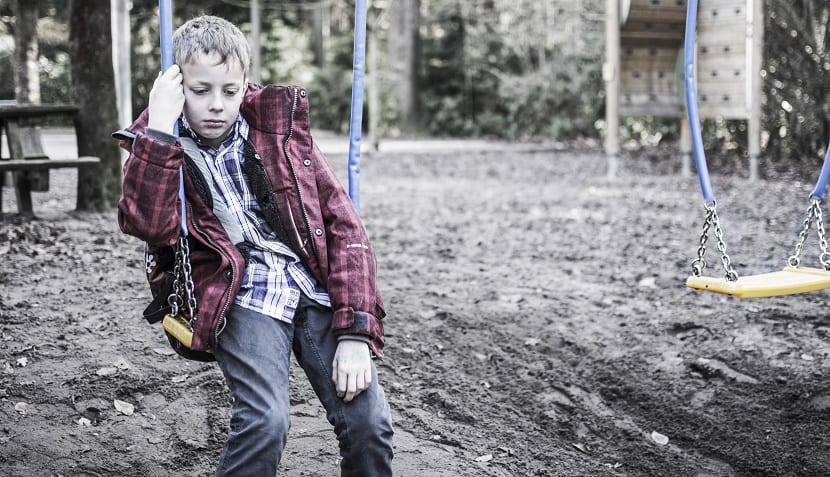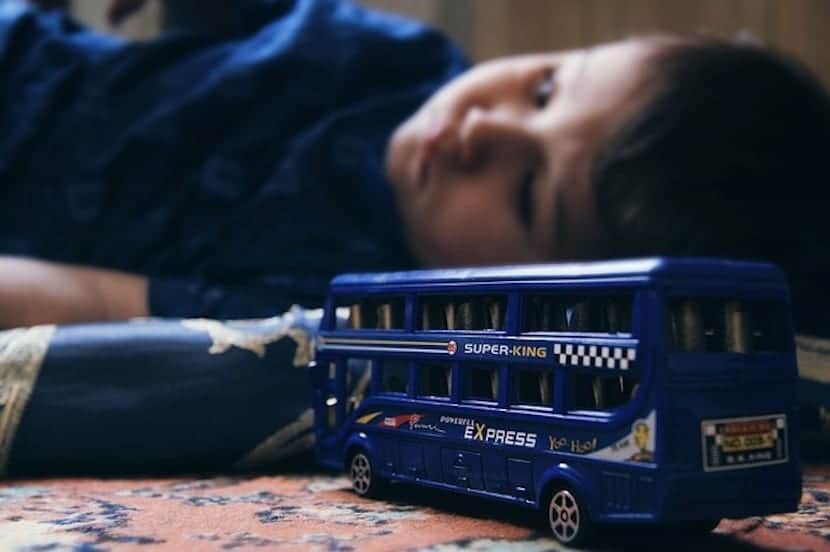
Children, like adults, can have depression. Sometimes children who are apparently normal or who do not have 'major problems' in their life can go into depression. It may be the chemical imbalance in your brain and this can lead to clinical depression. All parents need to be vigilant to recognize the signs and find out if their children are depressed or not. getting them help and proper treatment is crucial to their mental well-being.
Signs of depression in children
A major depressive episode requires depressed behaviors that last consistently for two weeks or more. If your child has been feeling depressed, hopeless, or very sad for two weeks or more, then it is cause for concern and to investigate exactly what is happening.
To know if your child has depression, they must have at least 5 of these behaviors present for two weeks or more. If so, it will be advisable that you seek help so that you can overcome this problem together. The signals are:
- Feelings of deep sadness or depressed mood that last most of the day (for two weeks or more). Children can seem more irritable than sad.
- Has no interest in activities for the vast majority of the time.
- Significant weight loss (without diet) or decreased appetite. It does not gain weight during growth.
- Difficulty to sleep.
- There is significant slowness or delay in your speech and physical actions.
- Fatigue and loss of energy.
- Feelings of worthlessness or excessive guilt every day.
- Difficulty thinking, making decisions, or concentrating every day. This can be reflected in your grades.
- Preoccupation with death and dying or suicidal thoughts.

Keep in mind that if your child has had a loss of a loved one it is likely that he or she is going through stages of grief and it is normal in this case to show signs of depression. But if you get stuck in this stage then it will be necessary to seek the help of a psychological professional. On the other hand, if you are not grieving and have the above symptoms, then you will need to be diagnosed by a professional to know if you are really experiencing depression.
Professional help for children with depression
Depression is a mental disorder and what happens should not be minimized, especially if there are suicidal thoughts. You should take your child's emotions seriously, since suicide is the second leading cause of death in children and adults between the ages of 10 and 34. If your child has depression, professional help will be needed as soon as possible. You will first have to take him to the pediatrician for an evaluation. Depending on the severity of your symptoms, you may benefit from medications such as antidepressants.
Most professionals do not dispense medication as the first remedy for depression. Instead, therapy is the first line of defense against depression, with medication combining with therapy if therapy is not enough or if symptoms are severe enough.

Tests what they will do to your child
To know if your child has depression or not, it will be necessary for the doctors to do a series of tests, because only in this way will it be possible to know if he really has this disorder or if, on the contrary, they are normal phases of his development that he must pass (although he needs strategies from a psychologist to be able to face it).
There are assessment tools that professionals can use to help properly determine if your child is depressed. The three tools used to assess depression in children are:
- The Childhood Depression Assessment Scale
- Childhood Depression Inventory
- Global Clinical Impression
Taking your child to a professional mental health counselor, psychologist, or psychiatrist can help ensure proper testing and evaluation is done. Therefore, if you think that your child may really have depression, do not skimp on means because his emotional health is essential for him to have a good evolutionary development. You need to learn the right strategies to be able to get out of that state that torments you and that makes him live life as a suffering.
The therapy
At present there are many types of therapy that your child can perform with the professional, but what really matters, in addition to the therapy that they perform in the sessions, is that parents and family are also part of their recovery process from depression . A child needs the support of his family to realize that all the people around him who love him, love him and want him to be well in all aspects.

It is necessary to find a professional who considers therapy together with the family and above all, that he is specialized in childhood depression and its treatment. Before opting for a professional you will have to investigate the references they have and see if they are a good professional.
Cognitive behavioral therapy is one of the main therapy methods in treating childhood depression. For younger children, play therapy is helpful in treating childhood depression, as children are often better able to communicate through play than conversation alone. Younger children express their emotions and feelings differently from adults since they have a lower capacity for language and expression.
Once the children begin therapy, it is necessary for parents to also be part of it, to be aware of how and what is being worked with their child in each session. The transparency of the professional is important in each of their actions. Be wary of professionals who do not tell you how they work with your children or who do not want parents to be involved in it. Although it is true that the stages of therapy must be respected, it is important to follow the steps of the professional and the instructions they give you to be able to work with the necessary tools from home and thus improve the mental health of your child.